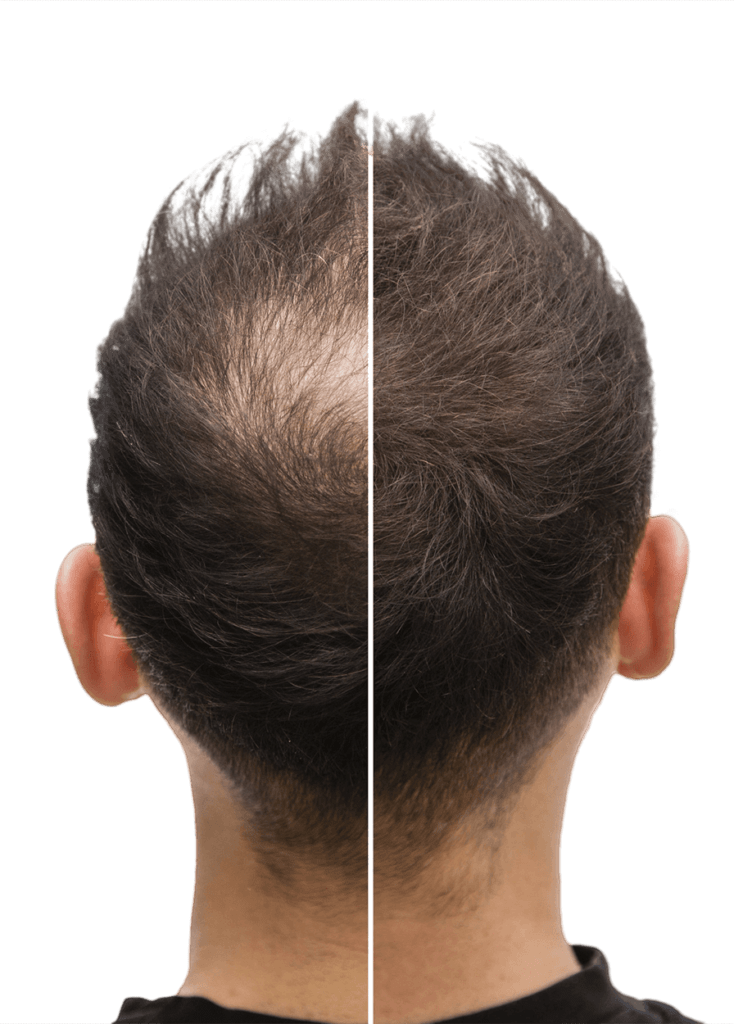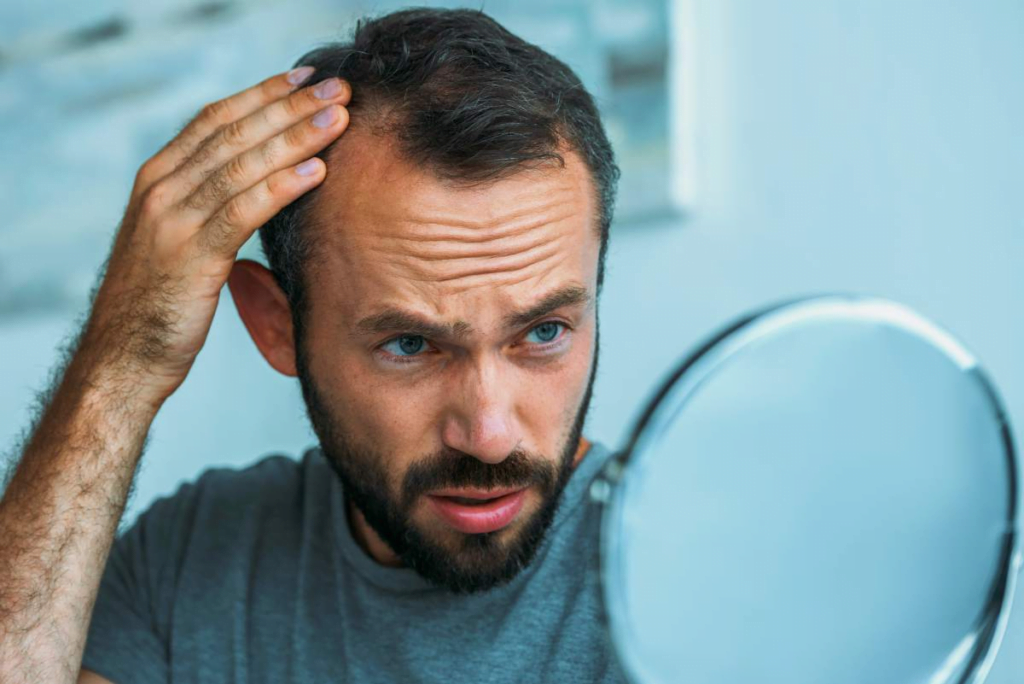Why do Americans go to Turkey for hair transplant? Hair loss can be a daunting reality for many, and the search for effective solutions often leads down a winding path. But have you considered venturing beyond your borders for a potential answer? Turkey for hair transplant has emerged as a popular destination for Americans seeking to restore their crowning glory, and for good reason. So, ditch the despair and dive into the world of Turkey hair transplants – you might just be surprised at what awaits!

İçindekiler
Why is Turkey for Hair Transplant So Much Cheaper Than the US?
The allure of Turkey for hair transplant isn’t just about stunning vacation photos. The significantly lower cost compared to the US is a major draw for many seeking restoration solutions. But before booking your flight, understanding the reasons behind this price disparity is crucial.
Lower Overall Costs: Turkey boasts a generally lower cost of living compared to the US. This translates to cheaper:
- Medical facilities: Rent, staffing, and equipment costs are significantly lower in Turkey, impacting clinic overhead.
- Surgeon compensation: While skilled, Turkish hair transplant surgeons typically command lower salaries compared to their US counterparts.
- Tourism economy: Capitalizing on medical tourism, Turkey offers competitive packages that bundle surgery with accommodation and travel, further reducing perceived costs.
High Volume, Competitive Market: Turkey has become a hub for hair transplant tourism, fostering intense competition among clinics. This drives down prices as clinics vie for international patients, offering lower price points to stay ahead.
Government Incentives: Recognizing the economic potential of medical tourism, the Turkish government actively encourages it through tax breaks and subsidies, which indirectly contribute to lower procedure costs.
Important Caveats: It’s crucial to remember that cost shouldn’t be the sole factor influencing your decision. Consider:
- Quality variations: The sheer number of clinics in Turkey can make thorough research essential. Seek reputable, board-certified surgeons and accredited facilities to ensure quality and safety.
- Hidden costs: Beware of unrealistically low price tags that may exclude post-operative medications, follow-up care, or necessary travel expenses.
- Limited recourse: If complications arise, seeking legal recourse against a Turkish clinic might be challenging due to geographical and legal complexities.
Ultimately, Turkey for hair transplant offers an undeniable cost advantage. However, prioritize thorough research, surgeon qualifications, and clinic accreditation to ensure a safe and successful hair restoration journey. Remember, while the price tag might be tempting, your well-being is priceless.

Unveiling the Savings: How Much Can You Save on a Hair Transplant in Turkey?
The whispers are true: Turkey for hair transplant often translates to significant cost savings compared to the US. But just how much can you realistically expect to pocket? Buckle up, because we’re diving into the world of transplant economics.
The Price Equation:
The magic number depends on several factors:
- Number of grafts: This significantly impacts cost. Expect to pay per graft, with prices ranging from $1 to $3 in Turkey, compared to $4 to $8 in the US. For a 2,000 graft procedure, that’s a potential saving of $6,000!
- Technique: The chosen technique (FUE, DHI, etc.) can influence cost. Research and compare clinic offerings for transparency.
- Clinic reputation & experience: Established, reputable clinics might command slightly higher prices, but often translate to better quality and safety.
- Package deals: Many clinics offer all-inclusive packages encompassing surgery, accommodation, and travel, potentially saving you the hassle of individual bookings.
Savings Spectrum:
Here’s a glimpse into potential savings based on graft number:
- 1,000 grafts: Savings of $2,000-$6,000 compared to the US.
- 2,000 grafts: Savings of $4,000-$12,000 compared to the US.
- 3,000 grafts: Savings of $6,000-$18,000 compared to the US.
Remember, these are estimates. Always get personalized quotes from reputable clinics in Turkey for hair transplant.
Beyond the Numbers:
While savings are enticing, remember:
- Quality over price: Prioritize surgeon qualifications, clinic accreditation, and transparent communication over rock-bottom prices.
- Hidden costs: Factor in medications, post-operative care, and any travel expenses not included in packages.
- Peace of mind: Choose a clinic that offers clear aftercare support and easily accessible communication channels.
Turkey for hair transplant can offer significant financial advantages, but prioritize quality and safety for a successful and worry-free hair restoration journey. Do your research, compare options, and make an informed decision that fits your budget and well-being.
Navigating the Expertise: Are Hair Transplant Surgeons in Turkey Qualified and Experienced?
The allure of Turkey for hair transplant often hinges on affordability, but what about surgeon qualifications and experience? Let’s delve into the world of Turkish hair transplant expertise to help you make an informed decision.
The Landscape:
Turkey boasts a high concentration of hair transplant surgeons, fueled by:
- Growing Demand: The influx of medical tourism has spurred investment in training and facilities, leading to a larger pool of surgeons.
- Competitive Market: Clinics actively promote surgeon profiles and qualifications, aiming to attract patients through expertise.
Verification & Accreditation:
While the sheer number of surgeons might seem overwhelming, remember:
- Board Certification: Seek surgeons certified by reputable Turkish boards like the Turkish Society of Plastic, Reconstructive and Aesthetic Surgery (TPRECD).
- International Affiliations: Membership in international organizations like the International Society of Hair Restoration Surgery (ISHRS) indicates commitment to global standards.
- Clinic Accreditation: Choose clinics accredited by international bodies like Joint Commission International (JCI), ensuring quality control.
Experience Matters:
Beyond qualifications, consider:
- Years of Experience: Opt for surgeons with extensive experience in your specific hair loss pattern and desired technique (FUE, DHI, etc.).
- Before & After Photos: Scrutinize the clinic’s website and social media for patient results that align with your expectations.
- Online Reviews & Testimonials: Research independent platforms and forums for genuine patient experiences and feedback.
Cautious Optimism:
While qualified and experienced surgeons abound in Turkey, remember:
- Do your research: Don’t be swayed by solely by low prices or aggressive marketing.
- Seek consultations: Schedule virtual or in-person consultations to assess the surgeon’s communication, understanding of your needs, and proposed treatment plan.
- Beware of red flags: Unrealistic promises, lack of transparency, and hesitation to answer your questions are potential warning signs.
Turkey for hair transplant can offer access to skilled surgeons, but thorough research and due diligence are paramount. Prioritize qualifications, experience, and clear communication to find the right surgeon for your journey towards renewed confidence.
Unveiling the Potential Drawbacks: Risks and Complications in Turkey Hair Transplants
While Turkey for hair transplant offers undeniable cost benefits, it’s crucial to acknowledge the potential risks and complications involved. Remember, prioritizing safety and quality should always trump solely price-driven decisions.
Surgical Risks:
- Infection: Improper hygiene or inadequate sterilization practices can lead to bacterial infections at the transplant site.
- Bleeding: Excessive bleeding during surgery can occur, though typically manageable by experienced surgeons.
- Scarring: Poor technique or overharvesting of donor sites can lead to visible scarring.
- Anesthesia complications: Allergies to anesthesia or reactions during administration can occur, though rare.
Aesthetic Concerns:
- Unnatural hairline: An inexperienced surgeon might create an unnatural-looking hairline, impacting the final result.
- Uneven hair density: Improper graft placement can lead to patchy or uneven hair growth.
- Poor graft survival: Mishandled or damaged grafts might not survive transplantation, impacting final density.
- Scarring in recipient area: Similar to donor sites, improper technique can lead to scarring in the recipient area.
Additional Considerations:
- Language barriers: Communication difficulties with the surgeon or clinic staff can lead to misunderstandings or missed information.
- Limited recourse: Seeking legal recourse in case of complications might be challenging due to geographical and legal complexities.
- Follow-up care: Ensure the clinic offers clear and accessible post-operative care and support after your return home.
Mitigating the Risks:
- Thorough research: Choose a reputable, accredited clinic with board-certified surgeons and positive patient reviews.
- Clear communication: Discuss your expectations and concerns openly with the surgeon before proceeding.
- Realistic expectations: Don’t be swayed by unrealistic promises; understand the potential risks and limitations of the procedure.
- Prioritize quality: While cost is important, don’t compromise on surgeon qualifications, clinic accreditation, and safety protocols.
Remember: Turkey for hair transplant can be a viable option, but prioritize thorough research, prioritize surgeon qualifications and clinic accreditation, and manage your expectations to minimize risks and maximize your chances of a successful hair restoration journey.

Conclusion
In conclusion, Turkey for hair transplant presents a compelling option for cost-conscious individuals seeking hair restoration. However, it’s crucial to approach this decision with informed awareness. Remember, prioritizing safety and quality over solely price-driven choices is paramount.
By understanding the potential risks, conducting thorough research, and choosing reputable, qualified surgeons and accredited clinics, you can significantly increase your chances of a successful and confidence-boosting hair transplant experience in Turkey.
Don’t let questions linger! Take the initiative to research further, schedule consultations, and ask informed questions. Your journey towards a fuller head of hair starts with informed action. Remember, you deserve a safe and effective hair transplant experience, and with careful planning, Turkey for hair transplant can be a part of your successful story.
Hairtrans.com was founded by world-famous plastic surgeon Dr. MFO, who is an expert in facial feminization or facial masculinization surgeries, and is managed under his leadership. Would you like to have a hair transplant under the coordination of a plastic surgeon with many years of experience?
Whether you are a trans woman or a natural born male or female, if you are looking for the best hair transplant, contact us now.


